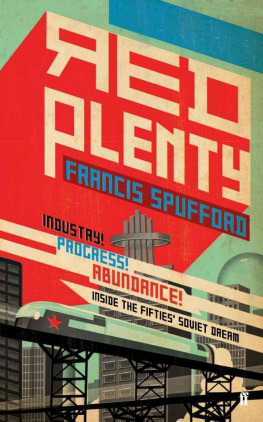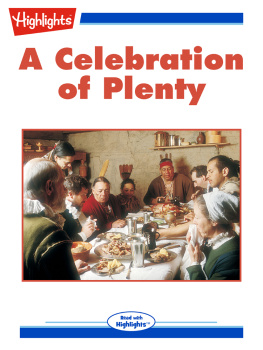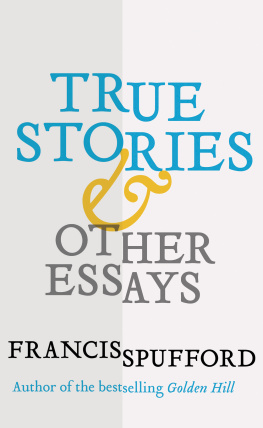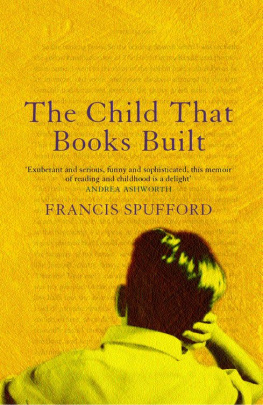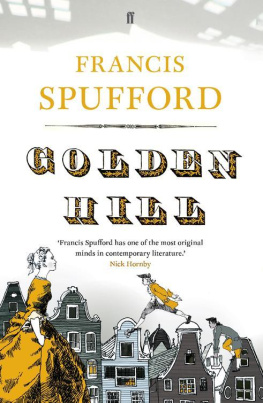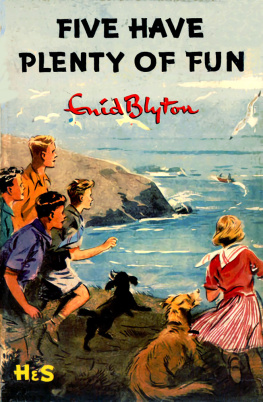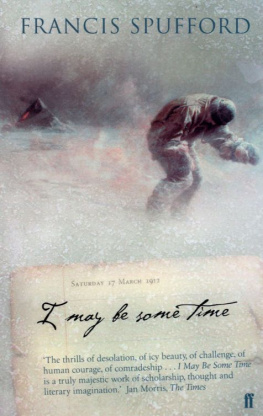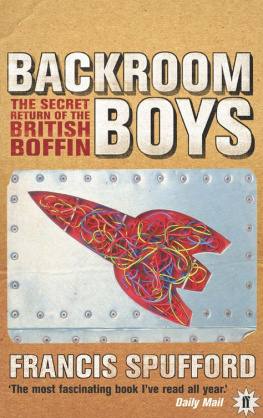F Spufford - Red Plenty
Here you can read online F Spufford - Red Plenty full text of the book (entire story) in english for free. Download pdf and epub, get meaning, cover and reviews about this ebook. year: 2010, publisher: Faber and Faber, genre: Detective and thriller. Description of the work, (preface) as well as reviews are available. Best literature library LitArk.com created for fans of good reading and offers a wide selection of genres:
Romance novel
Science fiction
Adventure
Detective
Science
History
Home and family
Prose
Art
Politics
Computer
Non-fiction
Religion
Business
Children
Humor
Choose a favorite category and find really read worthwhile books. Enjoy immersion in the world of imagination, feel the emotions of the characters or learn something new for yourself, make an fascinating discovery.
- Book:Red Plenty
- Author:
- Publisher:Faber and Faber
- Genre:
- Year:2010
- Rating:4 / 5
- Favourites:Add to favourites
- Your mark:
- 80
- 1
- 2
- 3
- 4
- 5
Red Plenty: summary, description and annotation
We offer to read an annotation, description, summary or preface (depends on what the author of the book "Red Plenty" wrote himself). If you haven't found the necessary information about the book — write in the comments, we will try to find it.
Red Plenty — read online for free the complete book (whole text) full work
Below is the text of the book, divided by pages. System saving the place of the last page read, allows you to conveniently read the book "Red Plenty" online for free, without having to search again every time where you left off. Put a bookmark, and you can go to the page where you finished reading at any time.
Font size:
Interval:
Bookmark:
Francis Spufford

For my mother
in order of first appearance
CAPITALS indicate the part of a name most often used in the book
* indicates a real person
(I.2, IV.1, etc) indicates the part and chapter numbers of further scenes in which the person appears
* LEONID VITALEVICH Kantorovich, a genius (I.1, II.1, III.1, VI.2, VI.3)
* Nikita Sergeyevich KHRUSHCHEV, First Secretary of the Communist Party of the Soviet Union and Chairman of the Council of Ministers (I.2, III.2, V.1, VI.3)
* NINA PETROVNA Khrushcheva, his wife (I.2, VI.3)
* Andrei GROMYKO, Soviet Foreign Minister (I.2)
* Oleg TROYANOVSKY, Khrushchevs interpreter (I.2)
* Dwight D. EISENHOWER, President of the United States (I.2)
* Henry Cabot LODGE, US Ambassador to the United Nations (I.2)
* Averell HARRIMAN, a millionaire acting as EastWest liaison (I.2)
GALINA, a student at Moscow State University and Komsomol member (I.3, V.3)
VOLODYA, ditto, her fianc (I.3, III.2)
KHRISTOLYUBOV, a minor apparatchik (I.3)
FYODOR, a Komsomol member from an electrical factory (I.3, V.2)
ROGER TAYLOR, an African-American guide at the exhibition (I.3)
EMIL Arslanovich Shaidullin, a well-connected young economist (I.4, II.1, III.1, V.2, VI.2)
MAGDA, his fiance (I.4)
Her FATHER (I.4)
Her MOTHER (I.4)
Her GRANDFATHER (I.4)
SASHA, her brother (I.4)
PLETKIN, the collective farm manager (I.4)
* Vasily Sergeyevich NEMCHINOV, a reforming economist and academic politician (II.1)
* BOYARSKII, a political economist of the old school (II.1)
* Sergei Alexeievich LEBEDEV, a pioneering Soviet computer designer (II.2, VI.1)
* Sasha/Alexander GALICH, a writer of stage comedies, screenplays and ideologically acceptable song lyrics (II.3, VI.2)
MORIN, a Thaw-minded newspaper editor (II.3)
MARFA TIMOFEYEVNA, a newspaper censor (II.3)
GRIGORIY, a doorman at the Writers Union (II.3)
ZOYA Vaynshteyn, a biologist (III.1, VI.2)
VALENTIN, a graduate student in mathematics (III.1, VI.2)
KOSTYA, a graduate student in economics (III.1, VI.2)
HAIRBAND GIRL, Valentins would-be girlfriend (III.1)
* Andrei Petrovich ERSHOV, a computer programmer (III.1)
MO, a sardonic intellectual (III.1, VI.2)
SOBCHAK, an exasperated intellectual (III.1)
BASOV, regional Party Secretary (III.2)
* KUROCHKIN, director of the Budenny Electric Locomotive Works (III.2)
* Anastas MIKOYAN, long-serving Presidium (Politburo) member (III.2)
* Frol KOZLOV, Presidium member and heir apparent to Khrushchev (III.2)
The MONK-FACED MAN, a veteran operative of the organs of security (III.2)
Maksim Maksimovich MOKHOV, Deputy Director of the Sector of Chemical and Rubber Goods (IV.1)
ARKHIPOV, KOSOY and MITRENKO, the management of the Solkemfib viscose works (IV.2)
PONOMAREV, an engineer and former political prisoner (IV.2)
CHEKUSKIN, a tolkach or pusher; a buying agent (IV.3)
SEORA LOPEZ, a Spanish dancing teacher (IV.3)
RYSZARD, a junior manager in the chemical equipment division of Uralmash (IV.3)
STEPOVOI, an inexperienced executive (IV.3)
KOLYA, a king thief (IV.3)
The LIEUTENANT, a policeman (IV.3)
VASSILY, a truck driver and Spartak fan (IV.3)
Khrushchevs CHAUFFEUR (V.1)
* MELNIKOV, commandant of Khrushchevs first security detail in his retirement (V.1)
Khrushchevs COOK (V.1)
* Khrushchevs SON, Sergei Khrushchev, a rocket designer (V.1)
* Alexei Nikolaevich KOSYGIN, Chairman of the State Planning Committee (Gosplan) (V.2)
FYODORS MOTHER, an annoyingly slim woman in her forties (V.3)
IVANOV, her lover (V.3)
A tired DOCTOR (V.3)
INNA OLEGOVNA, a midwife (V.3)
FRENCHIE, a secretary (VI.1)
MAX, Zoyas ten-year-old son (VI.2)
TYOMA (short for Artemy), a doorkeeper in the Institute of Cytology and Genetics (VI.2)
The DIRECTOR of the Institute of Cytology and Genetics (VI.2)
Although the list above divides the people in this book into two categories, real and imaginary, there are a couple of characters who, while fictional, exist in a relationship to real historical individuals: they occupy similar historical positions, they play similar professional roles, they share to a limited degree in the life-histories and life-events of the real people who prompted their invention. Yet they are inventions. They are fictional people standing roughly where real people stood: Zoya Vaynshteyn displacing the real fruit-fly biologist Raissa Berg, and Emil Shaidullin rudely elbowing aside the eminent economist Abel Aganbegyan. It is important to understand that Zoya and Emil, as represented here, came straight out of my head. Their characterisations were not the result of any process of interview or research or investigation on my part, and are not intended to reflect any judgement of mine on the character of the real scientists whose places they have taken. No characteristic, trait, action, thought, intention, utterance or opinion of these characters should be taken as an indication of any corresponding characteristic, trait, action, thought, intention, utterance or opinion belonging to the real individuals.
This is not a novel. It has too much to explain, to be one of those. But it is not a history either, for it does its explaining in the form of a story; only the story is the story of an idea, first of all, and only afterwards, glimpsed through the chinks of the ideas fate, the story of the people involved. The idea is the hero. It is the idea that sets forth, into a world of hazards and illusions, monsters and transformations, helped by some of those it meets along the way and hindered by others. Best to call this a fairytale, then though it really happened, or something like it. And not just any fairytale, but specifically a Russian fairytale, to go alongside the stories of Baba Yaga and the Glass Mountain that Afanaseyev the folklorist collected when he rode out over the black earth of Russia, under its wide sky, in the nineteenth century.
Where Western tales begin by shifting us to another time Once upon a time they say, meaning elsewhen, meaning then rather than now Russian skazki make an adjustment of place. In a certain land, they start; or, In the three-times-ninth kingdom Meaning elsewhere, meaning there rather than here . Yet these elsewheres are always recognisable as home. In the distance will always be a wood- walled town where the churches have onion domes. The ruler will always be a Tsar, Ivan or Vladimir. The earth is always black. The sky is always wide. Its Russia, always Russia, the dear dreadful enormous territory at the edge of Europe which is as large as all Europe put together. And, also, it isnt. It is story Russia, not real Russia; a place never quite in perfect overlap with the daylight country of the same name. It is as near to it as a wish is to reality, and as far away too. For the tales supplied what the real country lacked, when villagers were telling them, and Afanaseyev was writing them down.
Font size:
Interval:
Bookmark:
Similar books «Red Plenty»
Look at similar books to Red Plenty. We have selected literature similar in name and meaning in the hope of providing readers with more options to find new, interesting, not yet read works.
Discussion, reviews of the book Red Plenty and just readers' own opinions. Leave your comments, write what you think about the work, its meaning or the main characters. Specify what exactly you liked and what you didn't like, and why you think so.

